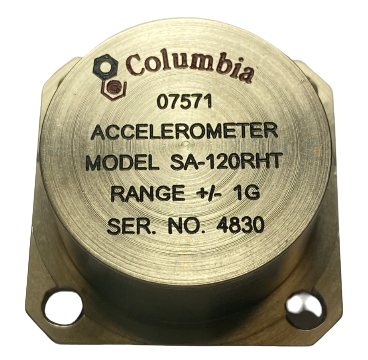Columbia Research Lab’s line of robust force balance accelerometers are an excellent fit for demanding Measure While Drilling (MWD) applications. These sensors give critical information, including the angle of the drill head, which is needed to calculate directional data. The operator then steers the drill using the measurement information, thus resulting in underground mapping.

Image Credit: Columbia Research Laboratories, Inc.
These accelerometers, specifically designed for use on drilling tools, utilize proven servo technology, giving the best possible performance with high reliability in harsh environments that include high temperatures and intense vibration.
The Model SA-120RHT, which is fit to operate at temperatures of up to 200 degrees Celsius, operates from +/-15 volts supply. Model SA-125RHT requires +/-5 VDC and operates to 190 degrees Celsius. Both sensors are completely self-contained and provide a high level, low impedance output, meaning high temperature signal conditioning is no longer needed.
These accelerometers are the accepted standard for use in downhole high temperature mapping due to their time proven, exceptional high temperature performance, in addition to their rugged construction, low power consumption, and small size.
The SA-120R/SA120RNP series accelerometers are designed to withstand high shock and vibration while experiencing temperatures of up to 125 °C. The SA-120R/SA120RNP models are compact single axis accelerometers that are available with acceleration input ranging from ±1 g to ±10 g.
Columbia also has the SA-220RHT/SA225RHT series accelerometers available for applications requiring a dual axis solution that can operate up to 200 °C.
MWD sensors are compact and available with a round flange or a square mount. Columbia also offers drop-in replacements for competitive accelerometers and provides the highest performance-to-cost ratio available, making it well suited to the current oil market.

This information has been sourced, reviewed and adapted from materials provided by Columbia Research Laboratories, Inc.
For more information on this source, please visit Columbia Research Laboratories, Inc.